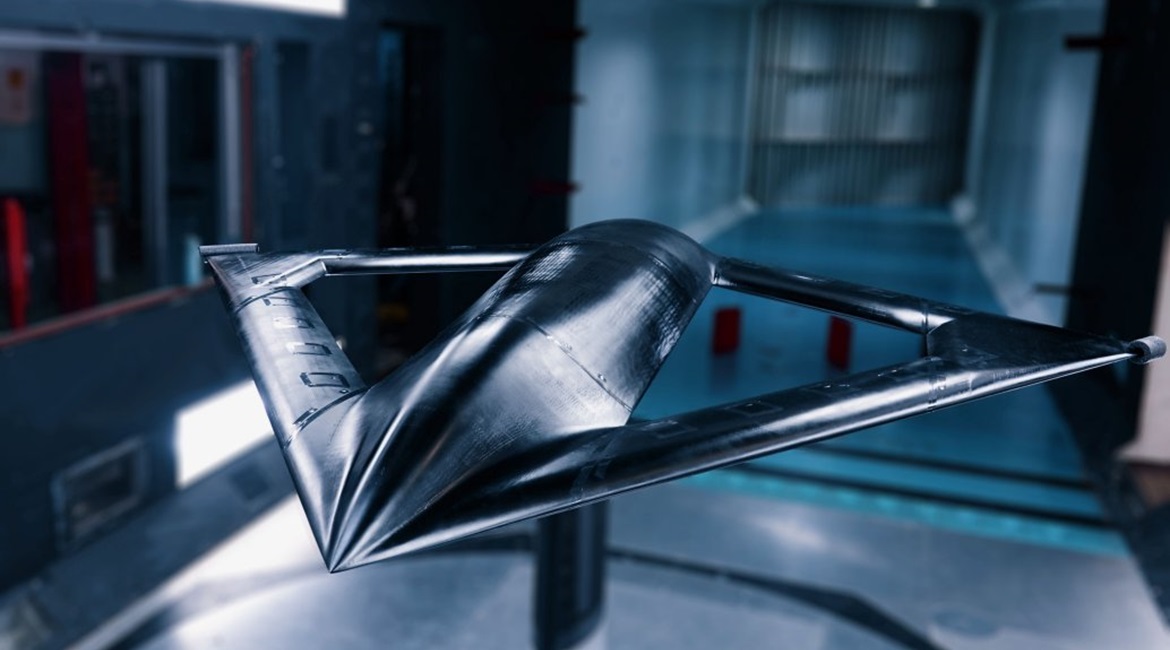
The US Defense Advanced Research Projects Agency (DARPA) has issued contracts to three industry teams to develop experimental aircraft (X-plane) based on active flow control, an area relatively little explored compared with traditional flight controls.
Aurora Flight Sciences, Lockheed Martin, and Georgia Tech Research Corporation were selected to work on the Control of Revolutionary Aircraft with Novel Effectors (CRANE) programme, according to an agency statement. The goal is to demonstrate significant efficiency benefits of active flow control, as well as improvements in aircraft cost, weight, performance, and reliability.

This coplanar joined-wing model is indicative of several aircraft configurations, conventional and unconventional, Aurora Flight Sciences and Boeing may explore under the CRANE programme. Boeing has conducted numerous test activities in the domain of active flow control, including wind tunnel and flight tests. (Aurora Flight Sciences)
Alexander Walan, CRANE programme manager, was quoted by DARPA on 20 July as saying that the contract recipients are looking at using active flow control early in the design scope, which he said has not been done before. Active flow control, he said, has been explored at a component level but not as an integral piece of aircraft design. By altering the design approach, CRANE seeks to maximise the chance of a successful X-plane development while also integrating active flow control into the aircraft’s stability and control.
DARPA said on 17 November that the CRANE programme is organised into four phases. The current award includes a funded Phase 0 effort with an option for Phase 1. Proposals for Phases 2 and 3 will be solicited later in the programme. DARPA plans to execute Phase 1 contract options for at least two contractors.
Looking to read the full article?
Gain unlimited access to Janes news and more...


